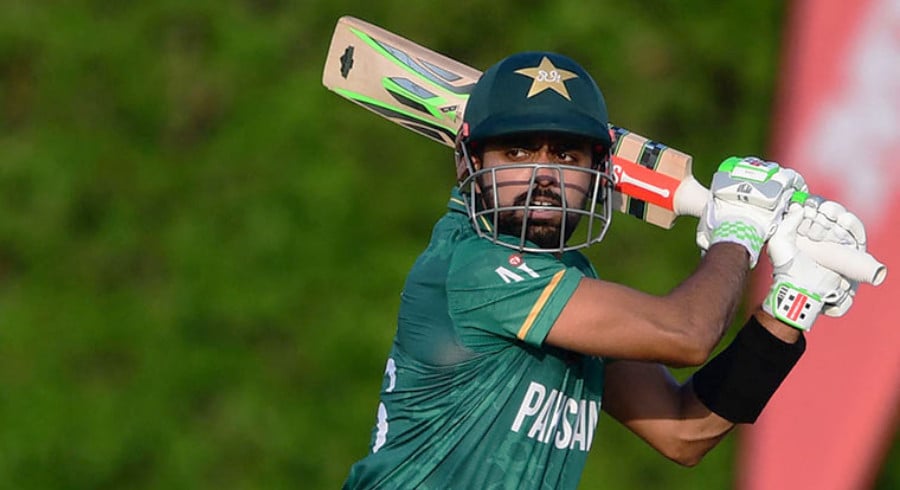
Babar Azam and Zaka Ashraf have been making headlines globally for several days now. The current PCB chairman has faced intense scrutiny from the world media and cricket experts for publicly criticising his underperforming team right in the middle of the tournament.
Meanwhile, the Pakistani skipper, Babar Azam, has garnered more attention for a screenshot than for his subpar performance in the tournament.
Much like many other things in Pakistan, their notoriety has little to do with the actual game and much to do with pointless displays of egotism. One individual occupies a prestigious position while the others aim to turn up the live transmission.
If you ask an average person on the street, they would likely say that the ill-intended and reckless statement issued by Ashraf and his associates would have been better left as mere idle bathroom thoughts or an angry email written and promptly deleted.
The question that arises is why the chairman of a sports board would publicly call out a captain and team management that is already struggling with poor performance. This situation is not too dissimilar from political parties uniting to bring down a government that's about to die its own death, having just a year-and-a-half of bad governance to salvage.
Sadly, we've witnessed both scenarios become a reality within a span of two years. Patience seems to be in short supply, and regrettably, there's no vaccine for a lack of foresight. Otherwise, not only Zaka Ashraf but many individuals holding important positions in Pakistan's higher offices could certainly benefit from some immunity to nonsense.
Read Shahid Afridi brutally slams PCB chief Zaka Ashraf
Equally immune to common sense and numb to standard journalistic practices is an anchor known for asking seemingly innocent questions and selling expensive perfumes. He and his team of reporters were so eager to make their point that they actually shared a screenshot of a private conversation between the Pakistani cricket team captain and PCB's media manager.
Before delving into the despicability of airing someone's private conversation without consent, it's important to note that there wasn't much substance in that conversation, aside from claims by veteran cricketer Rashid Latif that the chairman was not returning Azam's calls.
Azam had never made such claims, but the chairman was quick to make a TV appearance and share that screenshot with a TV channel that thoughtlessly aired it during prime time.
Like all leaders who are destined to rule for a fortnight, Ashraf's infantile behavior turned Pakistan cricket into a circus of which the ringmaster himself was the main act.
Given the toxic statement released by PCB earlier, one wouldn't have expected Zaka to refrain from being even more toxic. However, the journalists could have exercised better judgment. Unfortunately, they didn't. The anchor apologised for their error by explaining that they were initially hesitant to share the screenshot, but since they had Ashraf's consent, they decided to proceed.
Where in the world does journalism operate like that? Where in the world are private text messages made public with the consent of only one party? Where in the world do chairmen use TV channels to settle personal scores, and where in the world are players ridiculed in the midst of a tournament?
Read more PCB, Babar Azam react to leaked WhatsApp chat: report
You don't need Sherlock Holmes to answer these questions; even Scooby-Doo would find the sheer stupidity of it all laughable.
It seems that we are graced with a broadcast machinery led by 'intellectuals' who manage to collect all the filth in our collective psyche, juxtapose it with the worst of our societal contradictions, and present it as honest and exclusive journalism.
Such petty and loathsome acts have previously driven victims of such leaks to take their own lives, let alone suffer profound psychological distress during a competition. The pain felt in these situations isn't merely shame; it's the bewilderment that follows when your privacy is violated publicly, and the "what-ifs" keep piling up.
Leaks are not always scandalous, and not everything that is leaked is necessarily a scandal. However, this entire spectacle, starting with the initial statement and culminating in the release of the screenshot, appears to be aimed at making the skipper, the team, and its management appear disposable and unimportant.
Not long ago, this same team was celebrated with focused social media and image-building campaigns, aiming to elevate our heroes to global superstardom. It took just one poor tournament for the same board to treat them like human waste.
This entire drama is not an isolated incident.
As a nation living on borrowed crumbs and counting on an upcoming election to magically transform our lives, we have relinquished our critical thinking to the constant background noise of media and culture. This noise becomes noticeable only when it runs out of fuel.
Unfortunately, our cultural generator keeps going, and it's amplified by 'investigative' tools like leaked audio and compromising screenshots. Ironically, these tools are seldom wielded as forcefully against powerful institutions as they are against vulnerable individuals.
The trend of presenting screenshot or leaked evidence to support a claim on national television also enables anchorpersons to normalise public moral criticism while projecting a saintly aura that evolves with each passing season, whether it's related to religion or sports.
They continue to expose someone's personal matters as we keep finding something to talk about. It's time to turn off the generator and switch to a more sustainable source of power.

1729662874-0/One-Direction-(1)1729662874-0-405x300.webp)


1722421515-0/BeFunky-collage-(19)1722421515-0-165x106.webp)

1726722687-0/Express-Tribune-Web-(9)1726722687-0-270x192.webp)

1732103737-0/Copy-of-Untitled-(55)1732103737-0-270x192.webp)













COMMENTS
Comments are moderated and generally will be posted if they are on-topic and not abusive.
For more information, please see our Comments FAQ